Brazilians celebrate Locarno win with rallying cry for their country’s ailing democracy
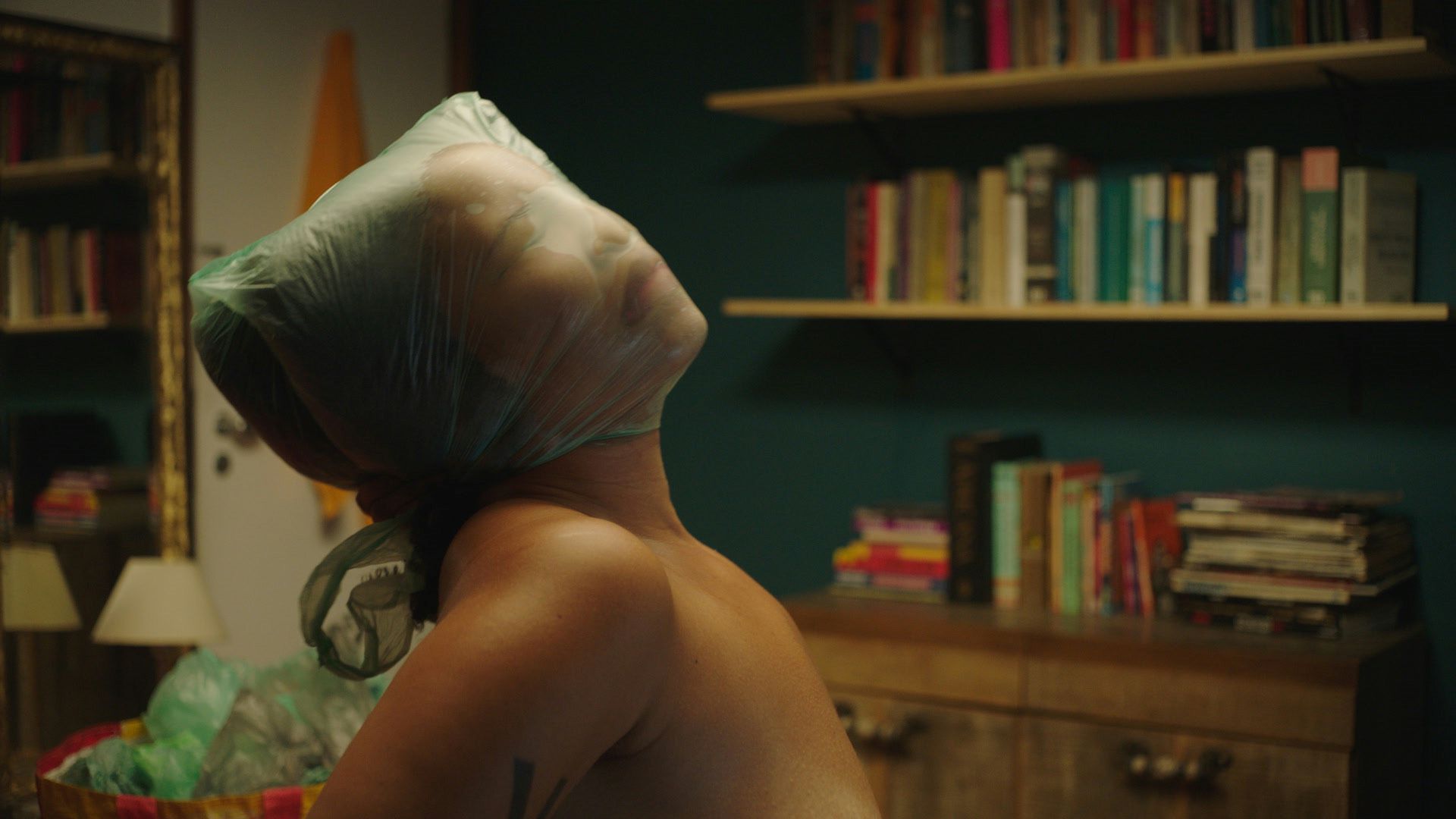
Last week Julia Murat’s Regra 34 (Rule 34) took home the Locarno Film Festival’s main prize, the Golden Leopard. SWI swissinfo.ch spoke with the director, who sees her award as a win for her country’s “battered cultural sector”.
“Fora Bolsonaro!” With the words “Bolsonaro out!” actress Sol Miranda used the defiant chant of the Brazilian opposition to close her acceptance speech after picking up the Pardo d’Oro, or Golden Leopard, at this year’s Locarno Film Festival for the film Regra 34.
For the director Julia Murat and her crew, who were present in Locarno, it was essential to take a political stand, just like many other Brazilian artists and performers have done at high-profile international events.
Murat explained to SWI swissinfo.ch that Jair Bolsonaro’s ultra-conservative government has made it an explicit policy to dismantle the country’s cultural sector. “You don’t need censorship or the other usual authoritarian tools – you just choke it off [the cultural sector] financially”, she says.
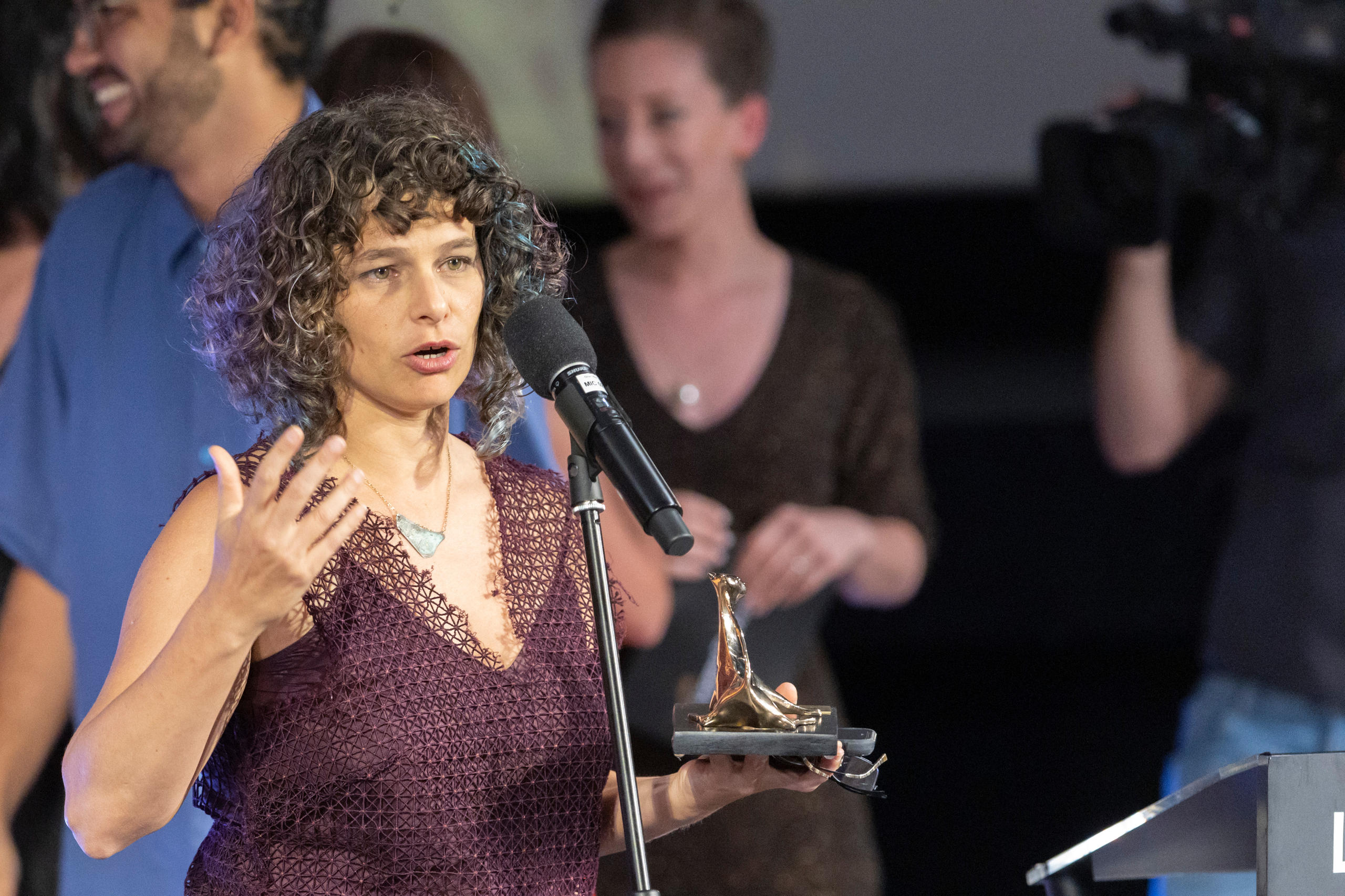
Closing the tap
The film industry, in particular, is in a shambles. At the moment, the only safety net for the national film industry are international streaming companies.
“Everyone I know is working for Netflix right now,” says Murat. “For technical crews, it is a bonanza of jobs, there is a lot of work.”
“I wonder how long this situation will last”, she adds, “because Netflix, Amazon, and HBO are changing their production guidelines, so even this little respite may be short-lived.”
For creative professionals, however, the picture is dire. “The smaller, independent producers are closing their doors,” she says. “I haven’t had a salary for over a year. My [production] company [Esquina Filmes] is going bankrupt and the owners or partners of other companies are doing executive production for streaming companies to make a living”.
Brazil had experienced a boom in audiovisual production starting in the early 2000s, thanks to a mechanism whereby projects endorsed by the federal film agency could raise funds through private companies and individuals, who then could deduct the amount as tax credits. Since Bolsonaro took power in 2019, all film submissions for federal endorsement have stalled. Regra 34 could go ahead only because it was in the last batch of projects to be processed after it was submitted in 2017.
The five years between submitting her film for funding and its consecration at Locarno were a long, bumpy ride. “We finished shooting one week before Covid lockdown struck Rio de Janeiro,” says Murat. The pandemic was not the only obstacle, for suddenly there were no possibilities for raising money for post-production in Brazil. A ”miraculous” grant from Göteborg Film FestivalExternal link (Sweden) for film-makers in “countries where democracy is at risk”, saved the day.
Everything is porn
The Rule 34 of the film’s title is an internet concept that states that everything in real life, even if made-up, has a corresponding pornographic depiction of it. The official synopsis of the film – “Simone, young law student whose sexual desires lead her into a world of violence and eroticism” – leaves out all the nuances that make it an impressive film, harsh in all its edges. Simone is a black woman. Her sexual desires delve deeper and deeper into sado-masochistic practices (BDSM), whereas her well dressed persona of public attorney apprentice faces daily cases of gruesome misogynistic violence, domestic or otherwise.
The simple dualism of pain and pleasure, or humiliation and revenge, are not enough to explain, or satisfy, Simone’s urges. The challenges she finds in the legal world are more complicated, including how the state can protect its citizens without inflicting even more violence onto the victims. Another question is whether prostitution should be banned. Inequality, racism, injustice, machismo, fear and quiet desperation sneak in almost every dialogue – as it does every day in the life of every black woman in Brazil.
The initial idea for the film had nothing to do with its final form. Simone didn’t even exist, Murat explains: “I wanted to investigate the universe of pornography because it was a world I didn’t know and about which I had lots of prejudices – and I don’t consider myself a moralist at all.”
But then a business partner showed her an interview with the celebrity porn actress Sasha Grey. “For her, porn is about pushing boundaries to extend the limits of your body, of your desires, of your thoughts. For me, that’s when the story of the film really kicked off,” says Murat.
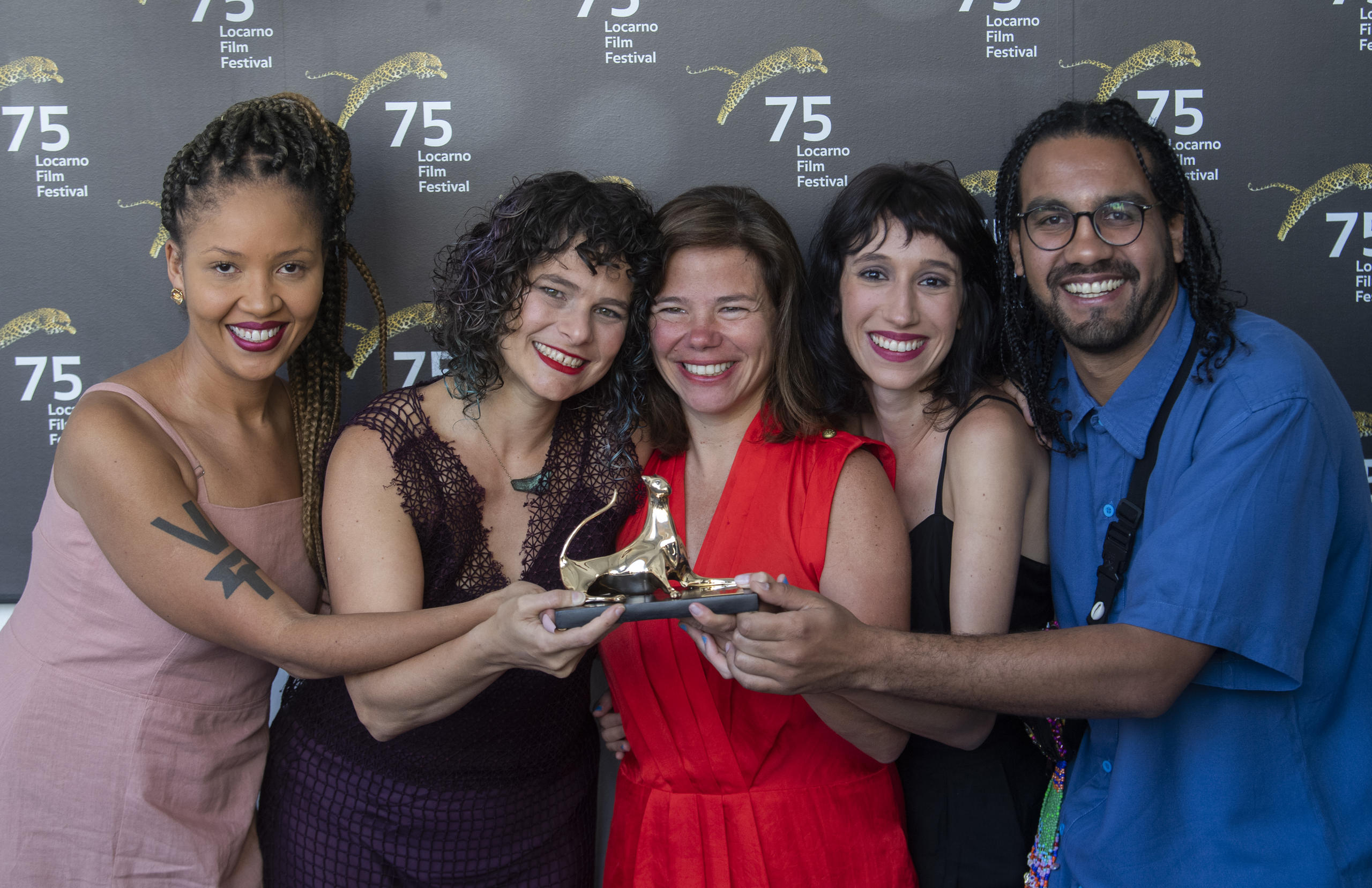
Political to be, or not to be
Her win in Locarno first came as a total surprise for critics, participants, the audience and even the film crew.
Rule 34 had a fairly good reception at the festival despite, or because of, the first minutes of the film, which shocked more puritan minds (no further spoilers here). That was a good start, after all there was not much shock in the programme this year. Still, the film experts in attendance didn’t consider the film a serious contender for the main prize, though not for lack of merit.
Considering Locarno’s programme, where highly politicised films set the tone by tackling current debates such as decolonisation, “new fascisms” or the rise of illiberal democracies, Rule 34 displayed its politics in the undertones. It doesn’t talk about dictators, political repression, or censorship, but its plot runs over a constant background of violence.
That was also the message in the acceptance speech of Sol Miranda, the actress who plays Simone but in real life is also an educator and mother who grew up in a slum. She is running for a seat in the federal parliament in the upcoming Brazilian general elections, on the same ticket as left-leaning ex-president Lula.
Miranda’s model and inspiration is Marielle Franco, the Rio de Janeiro city councillor who was assassinated by militiamen in 2018. The criminal investigation remains inconclusive, but Miranda is one of several poor, black, disenfranchised women who worked with Franco and ran for office after her death.
“It is not yet a story of success, though,” says Miranda, “it’s a constant, never-ending struggle.” This year’s electoral campaign registered record numbers of women joining the race, but still they make up only 33% of candidates.
The Golden Leopard, though, set a more optimistic mood. Murat is thrilled to reveal that, after being nominated to compete at Locarno, a member of the film crew’s WhatsApp group, daydreaming of winning the Leopard, renamed it “Nothing is impossible”. While SWI swissinfo.ch was speaking to Murat, they renamed it again, this time “Everything is possible”.
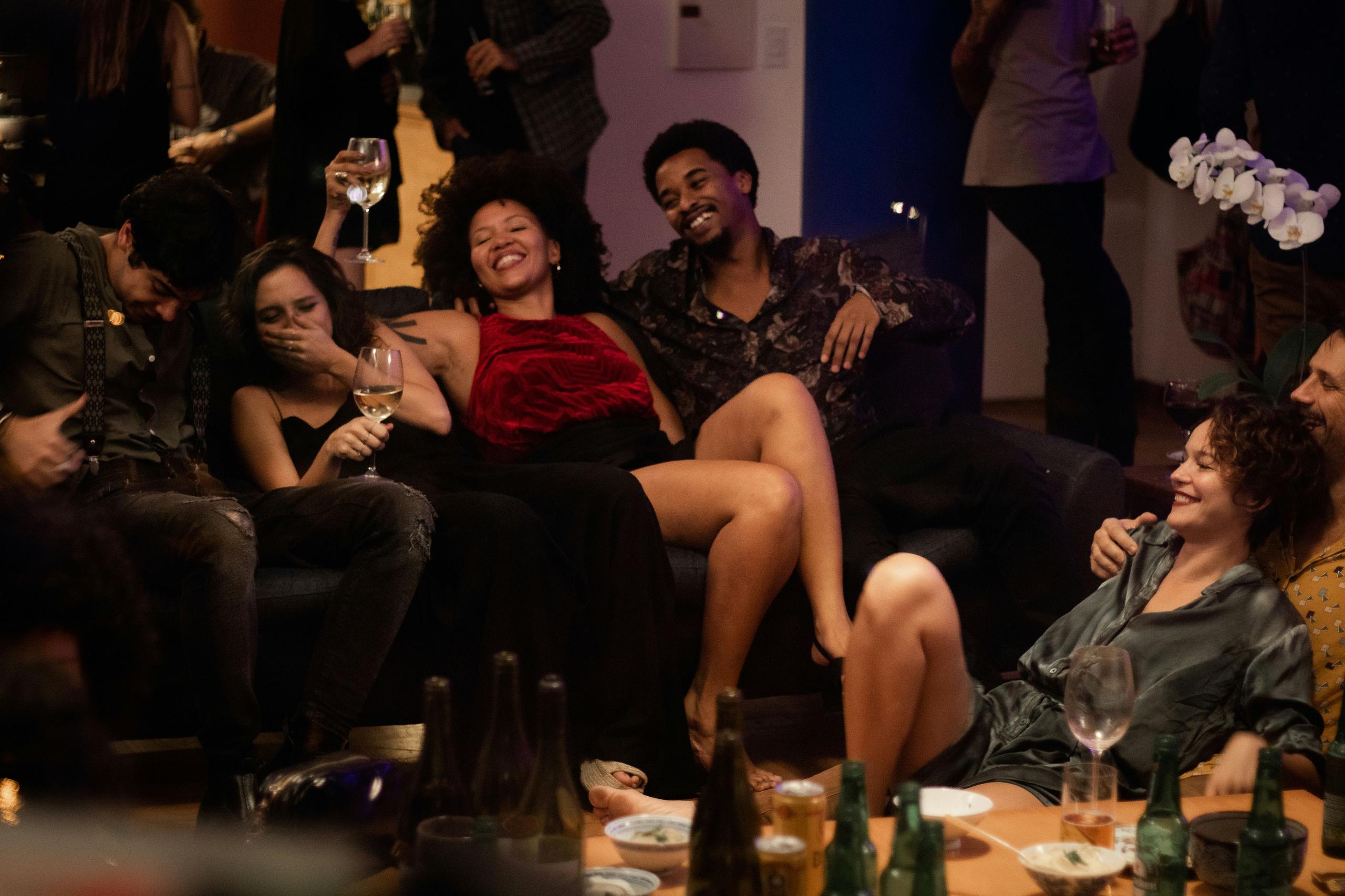
Edited by Mark Livingston/gw

In compliance with the JTI standards
More: SWI swissinfo.ch certified by the Journalism Trust Initiative










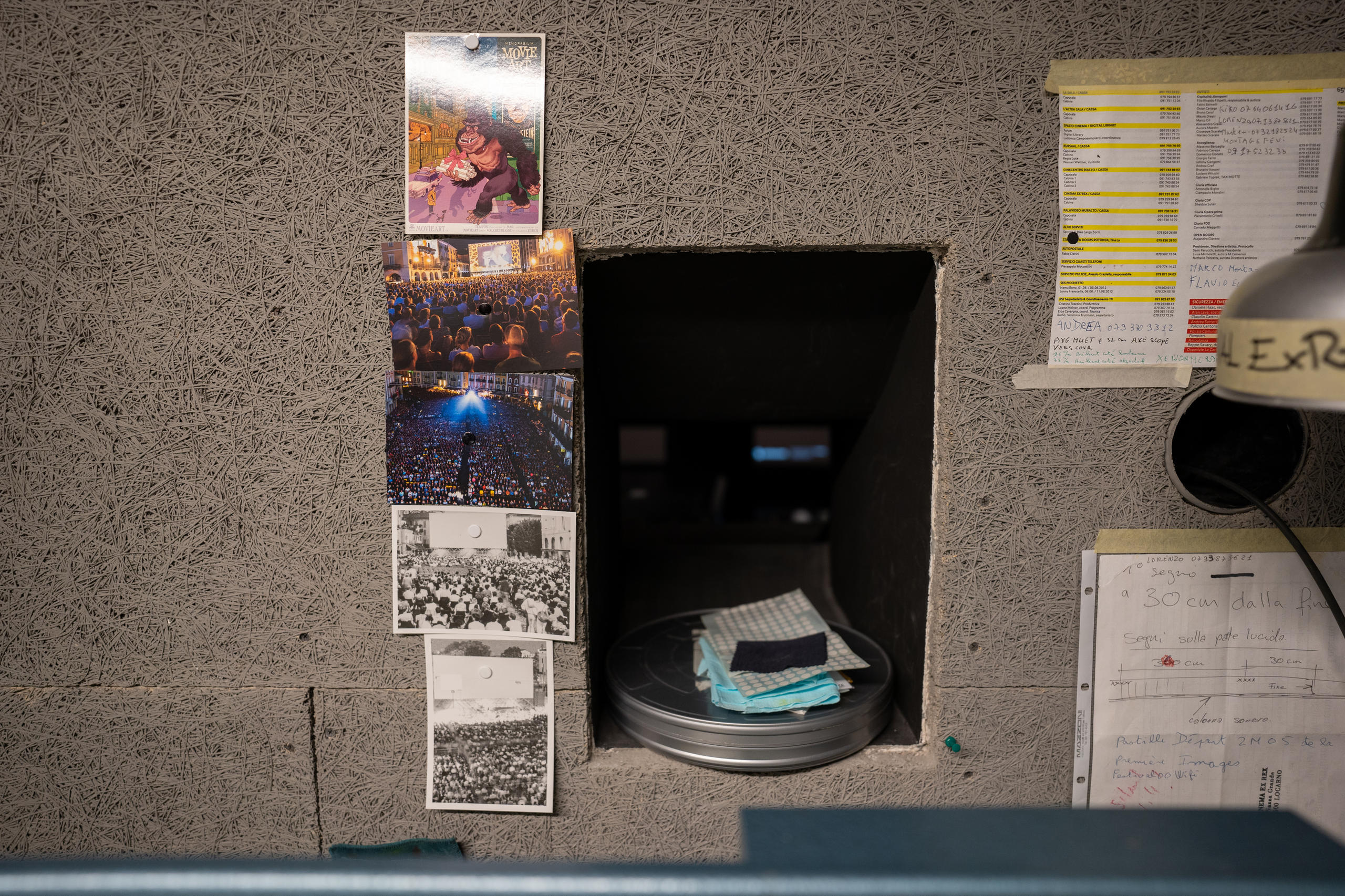



You can find an overview of ongoing debates with our journalists here . Please join us!
If you want to start a conversation about a topic raised in this article or want to report factual errors, email us at english@swissinfo.ch.